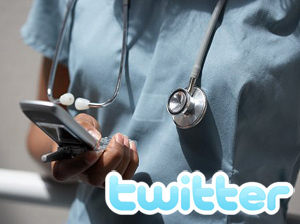A New Year’s Resolution for Healthcare Providers: Social Media
Medical Pharmaceutical Translations • Dec 29, 2014 12:00:00 AM

In a recent article, marketing expert Matthew Bushery lists some New Year’s resolutions he’d like to see in his field. All his talk of social media and generally keeping with the times got me coming back to something I’ve often pondered: why are some healthcare providers not connected, or barely involved in, social media? Countless studies and surveys show that, while more and more doctors, clinics, and hospitals are getting online, healthcare is still lagging behind other fields — and the general population — when it comes to social media presence.
It’s not that I’m a social media junkie or advocate; in fact, I’ve even written about why social media may not be necessary for most businesses. But there are some exceptions, and one of those is the healthcare field.
You might say that a Facebook page isn’t going to save patients’ lives, but in a way, it actually could. The Pew Internet Project has revealed that 72% of Americans have used the internet to get information about a medical question, condition, or diagnosis. A doctor’s blog about their condition, or a blog post about support groups, or even live video of a surgical procedure could inform and comfort a lot of people – and may even persuade them to get help. After all, following a live tweet of, say, a tumor removal, isn’t just for medical students or those with a penchant for gore; seeing what the procedure is like might reassure someone who’s going to have this operation.
But there’s more than just theory at play here: the concrete evidence is compelling. For example, YouTube, one of the most popular social media outlets for healthcare providers, gives hospitals, clinics, physicians, and others amazing visibility. The Mayo Clinic alone has over 24,000 subscribers to its YouTube channel, and its videos have garnered more than 16 million views. Whether they’re potential patients or information-seekers on the other side of the globe, people want to connect with and learn from healthcare providers in new ways.
And of course, they’re not the only ones who benefit from this social media presence; as many experts point out, by providing trusted, helpful information, healthcare providers can build up their reputation and appeal, attracting patients who may never have known about them in the “real world”. Let’s look at that live video of a tumor removal I used as an example. Well, not the real video, but its impact. In addition to intriguing the general public, and informing and possibly reassuring patients who may have to undergo the same procedure, there’s another advantage to posting something like this on social media. As digital marketing firm Marketo puts it, it’s a way to “showcase the facilities and level of care given by a healthcare facility”. This can not only make future patients feel better, but also convince other patients to choose your hospital or clinic.
Still, healthcare providers shouldn’t just dive heedlessly into social media. When it comes to time management, reaching their desired audience, and effectively getting their message out, they should think about which social media outlet(s) is/are right for them. Handy guides like this can help them figure out which one(s) would be a good fit.
So, if you’re a healthcare provider who’s not online already, why not start off 2015 with a post, a video, or a tweet?
#doctors #socialmedia #onlinemarketing #socialmediamarketing #aiatranslations
